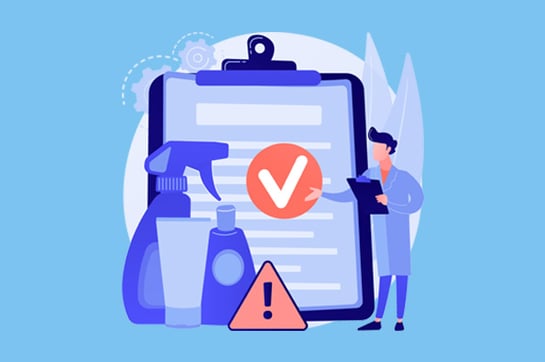1 min read
Comparing Member vs. Manager-Managed LLCs for Single-Member LLCs
Before we dive into this topic, first, some guidance that not many attorneys will tell you: this question doesn't matter that much for single-member...
8 min read
 Chris Daming, J.D., LL.M.
:
Apr. 15, 2025
Chris Daming, J.D., LL.M.
:
Apr. 15, 2025
When it comes to forming a single-member LLC, you’ve probably asked yourself: “Do I really need an operating agreement for my business?" "What’s the worst that could happen without it?” Also, "You’re saying I need to write a contract to myself?”

Legal GPS Pro
Protect your business with our complete legal subscription service, designed by top startup attorneys.
As lawyers, we get these kinds of questions regularly. And if you’re asking these questions, great! It means you’re thinking seriously about building a sustainable business. I’ll admit that it does seem strange at first to have to create an operating agreement when you’re the sole owner of your startup.
But there are a ton of good reasons why you’re going to want to get this agreement finalized. Let me explain.
Single-member LLCs, or LLCs with only one owner, are one of the most popular kinds of businesses. Many people choose this type of entity to take their passion project or side hustle to the next level. For this post, we’ll assume that you’ve correctly chosen the best business entity and decided a single-member LLC is perfectly right for your business.
One (of many) good things -- because there’s only one member, a single-member LLC can be less complicated to run than a typical multi-member LLC. And it requires considerably less paperwork than a corporation.
The first is your Articles of Organization, which needs to be filed with the state where your business is formed for your business to be legit. This document states your legal name, your LLC's purpose, registered agent, estimated duration, and planned management structure.
The exact details of the Articles of Organization (a.k.a. "Certificate of Organization") vary from state to state, but in general, it is merely just stating exactly what your company is, how it will be managed, and who will be running it.
The second document is your Operating Agreement. Below we'll go through step-by-step each provision contained in a single-member operating agreement.

Attorney-Drafted LLC Operating Agreement
Get a customizable, attorney-drafted LLC Operating Agreement built for legal protection.
Trusted by 1,000+ businesses to safeguard their LLCs.
An operating agreement is a contract between LLC members similar to a partnership agreement or a shareholders agreement. It shows the structure of the organization. It sets out the members’ duties, rights, and responsibilities in the operations and finances of the LLC. Most importantly, it covers what happens when a member wants to leave the business and how and when a member can transfer or sell their LLC interest.
So the question you must be asking yourself is, “Why would I need an operating agreement with myself?” Well, there is one really great reason… for protection!
So if you are starting a business, you want to make sure you have all of your legal paperwork in place. In researching your state’s requirements you might even discover that you’re not legally required to have an operating agreement for your LLC. (But, in many states, you are required by law!).
Please don't skip this step! Regardless of whether you’re legally required to have the agreement, it’s truly a necessary document for your business. While we talk about a lot of other reasons below, here’s the most obvious one—who owns your business?? If you set up Widgets, LLC, and 5 years down the road you’re trying to sell it—imagine going to a prospective buyer without any proof you actually own that business!
Your Articles of Organization—that doc you file with the state—doesn’t say you own it. It might say you’re the registered agent, but that doesn’t mean you own it. That’s what the operating agreement does, among many other things. Let’s talk about some other reasons.
First, we’ll go over why your single-member LLC needs an operating agreement. And then we’ll cover the topics that are usually included in an operating agreement.
Here are 3 reasons why having an operating agreement can be useful.
That’s right. An operating agreement helps protect your personal assets from your business assets. This is crucial to understand, as it’s the primary reason that your single-member LLC needs an operating agreement.
Even if an operating agreement isn’t required in your state, running your company without an operating agreement could jeopardize your LLC status.
Think about it. The main benefit of an LLC is the liability protection it offers. It’s probably the reason why you created your LLC in the first place.

Legal GPS Pro
Protect your business with our complete legal subscription service, designed by top startup attorneys.
In case you’re confused, let’s quickly go over what we mean by liability protection. LLCs protect your personal assets, such as your home and bank accounts, against people who sue your business for some reason (like damaging property or breaching a contract).
To keep this liability protection, you need to keep your business affairs and personal affairs separate. This includes not “commingling funds,” which means not treating your business finances as personal finances. It also includes respecting various business formalities, like keeping and maintaining meeting minutes.
If you don’t keep your business and personal stuff separate, then you risk someone “piercing the corporate veil” in court, which means they could legally get around your liability protections for not treating your business like a business.
An operating agreement is a key business document that shows your business operates like a legit company. Without the operating agreement, your state might not acknowledge you as an LLC, which means someone could sue you without there being any shield to protect your personal assets.
You’ve already put in the time and effort to form your LLC to get liability protection. So just go ahead and get an operating agreement to make that liability protection secure.
If you don’t have an operating agreement, your state’s default rules apply. Default rules are set by states so that, if a contract does not specify certain terms, there are rules set in place to fill these gaps. But since they’re made for the lowest common denominator of situations, they can sometimes give businesses unwanted results.
Example: Your state might have a default rule that gives someone, like a spouse or child, the right to inherit the assets of your LLC in the event of your death or incapacitation. But this right to inherit assets might not be coupled with the right to manage it.
So, if you want a specific person (like someone who knows the business and has worked there a long time) to take over your LLC in the event something bad happens to you, then you need to state that in your operating agreement. If you don’t, you could have a situation where you become incapacitated and your 2-year-old daughter is expected to take over the company and run it.
Banks and investors might want to see your operating agreement as proof that you own your LLC. Your state registration document alone doesn't prove it (remember above -- that document might not only state that you're the registered agent, but that's not the same as the LLC owner). So, it’s best to come prepared and have your operating agreement ready.


Legal GPS Pro
Protect your business with our complete legal subscription service, designed by top startup attorneys.
Now that you understand the importance of having a single-member LLC, you’re probably wondering what it entails and how to get started. Here is a list of what your operating agreement should cover.

Attorney-Drafted LLC Operating Agreement
Get a customizable, attorney-drafted LLC Operating Agreement built for legal protection.
Trusted by 1,000+ businesses to safeguard their LLCs.
Most of us small business owners dream of the day when our business expands past what we can manage by ourselves. If you find yourself in that fantastic position and you are ready to add another member to your LLC, instead of amending your operating agreement, you will likely want a new one.
The reason? A multi-member LLC operating agreement is considerably different than a single-member operating agreement and has many more complexities.

Nope! Unlike your Articles of Organization (or Certificate of Formation, depending on your home state), your operating agreement is an internal document that you simply keep in your own company's records. Sign it and keep a copy so you can find it when you need it, that's it!
The short answer is "yes." The agreement varies if you're a single-member vs. a multi-member LLC. It also depends on if you're manager-managed or member-managed, and how you're taxed. Your operating agreement will have tons of different legal clauses depending on each of those variables.
The biggest question now is, "Do I need an attorney for my LLC? To help you set up the LLC? Or to draft your operating agreement?" For most businesses and in most cases, you don't need a lawyer to start your business. Instead, many business owners rely on Legal GPS Pro to help with legal issues.
And if you know you want to DIY it (as most single-owner LLC owners do), and you know how you'll be managed and taxed, you can get one of our operating agreement templates below by clicking on the relevant link:
Or, if you want to get the agreement, plus 100+ other contract templates, along with a step-by-step, interactive platform to help you start and grow your LLC, check out the Legal GPS Pro tool.

Legal GPS Pro
Protect your business with our complete legal subscription service, designed by top startup attorneys.
|
Premium Template
Single-use Template |
Legal GPS Pro
Unlimited Access, Best Value |
|
|
| Choose Template | Learn More |
| Trusted by 1000+ businesses | |

1 min read
Before we dive into this topic, first, some guidance that not many attorneys will tell you: this question doesn't matter that much for single-member...

Starting a Single Member LLC is a popular choice for many entrepreneurs seeking flexibility and simplicity in their business structure. However, it's...

Every Limited Liability Company (LLC) needs a comprehensive, legally compliant operating agreement tailored to its unique needs and circumstances....